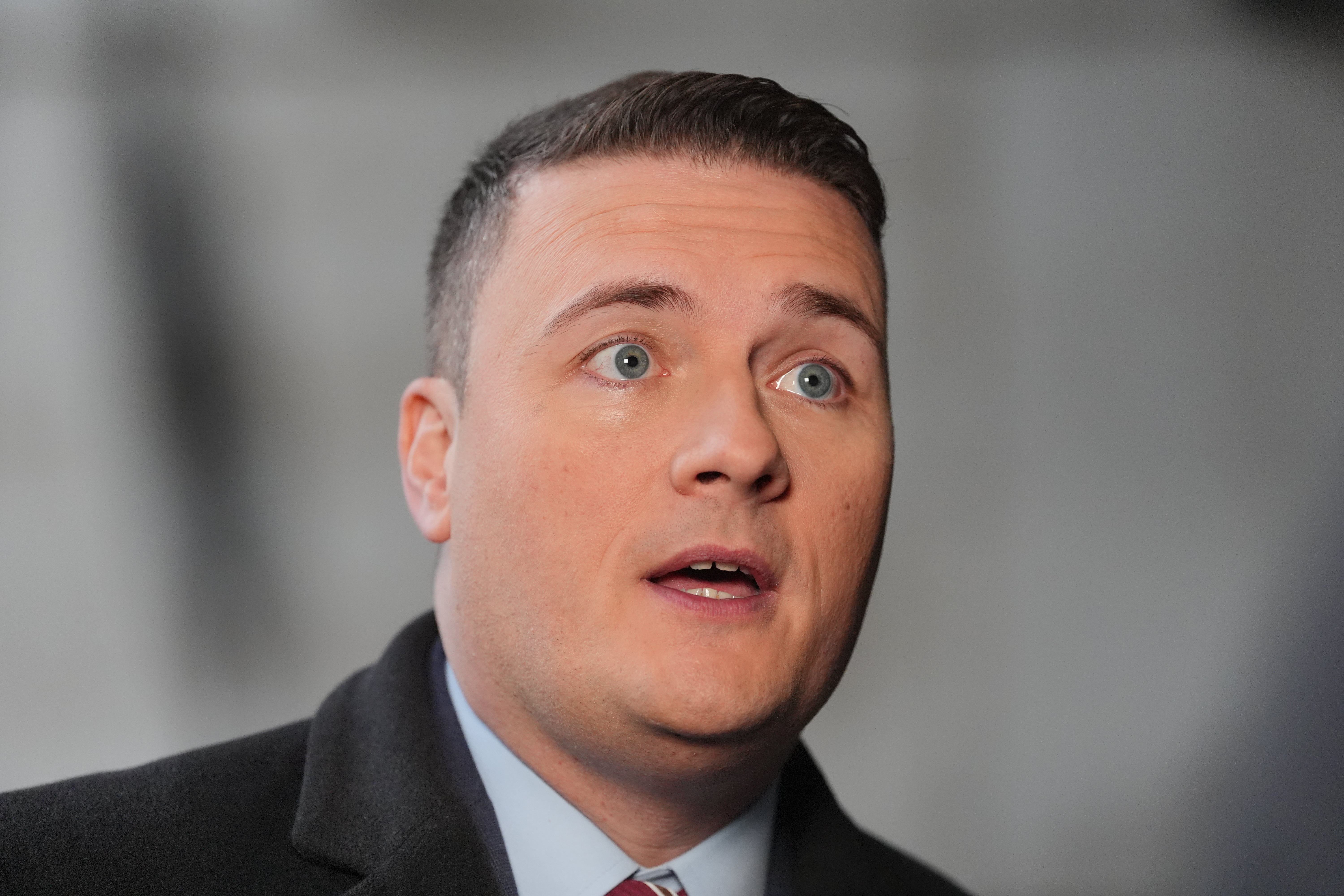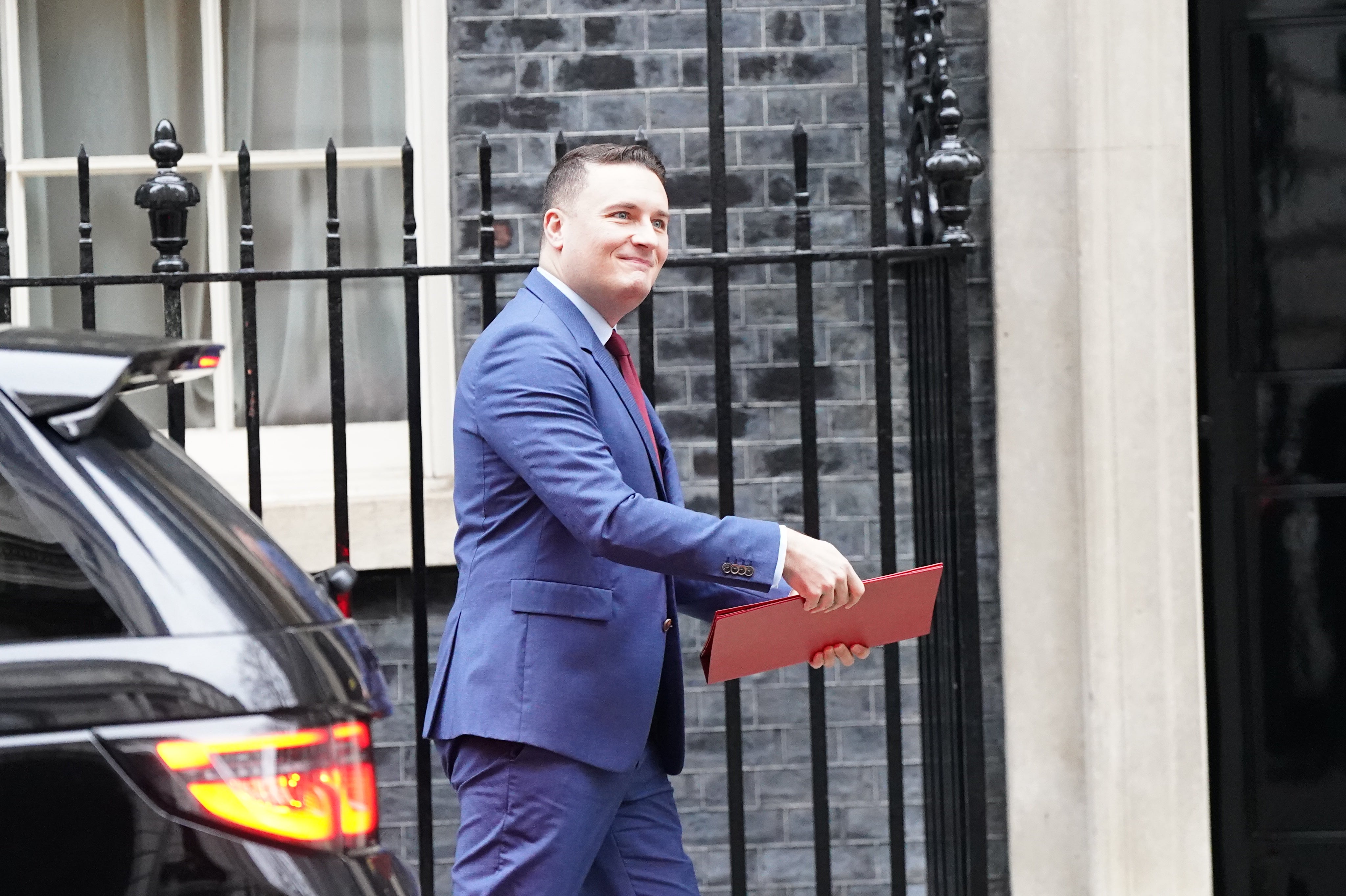Wes Streeting has been accused of causing “distress and uncertainty to trans people” and failing to provide clear information on the puberty blockers trial, which is understood to be starting soon.
Puberty blockers were banned indefinitely in the UK for under-18s in December after the Cass Review found there was insufficient evidence to show they were safe. It recommended a clinical trial to determine the effectiveness and safety of the medication.
It is understood the Department for Health and Social Care (DHSC) expects the trial to begin within the next few weeks and conclude in 2028.
But NHS sources told The Independent they are not expecting to publish any details about the trial until February – just one month before it is set to begin – leaving young people wanting to access the medication guessing if they will be part of the trial.
While the trial protocol was expected to be published in December, with recruitment beginning in January, NHS England has postponed meetings with charities providing support to young people with gender dysphoria, leaving them unsure of when the process will start or what it will look like.

Trans charities and campaign groups have so far received little to no information on who will be able to participate in the trial, how they will access it and when it will start, with Stonewall urging the government to “provide certainty to an extremely vulnerable group”.
Meanwhile, Tammy Hymas, head of communications and advocacy at charity Mermaids, told The Independent the “severe delays and complete absence of details” on the clinical trial has “left trans youth feeling abandoned”.
With more than 5,000 young people estimated to be on the waiting list, there is growing concern among trans advocacy groups over what the trial will look like.
DHSC sources claimed it will be uncapped – meaning that there is no upper limit on the number of people who can participate – insisting that most trans teenagers will be able to get themselves onto it. However, they said that there would be other criteria that would dictate who would be eligible to take part. These criteria will not be made public until February .
But with a waiting list more than five years long, question marks remain over how this would work in practice.

Meanwhile, a DHSC source stressed that they are reforming the system to ensure young people are no longer forced to spend “unacceptable time frames” on waiting lists.
Ms Hymas told The Independent: “Young people deserve access to the healthcare they need to be their authentic self, without being compelled to take part in research or having to wait for years for an appointment.
“With puberty blockers outside the NHS now banned and a waiting list in excess of five years, families and young people have been left with no safe, accessible or affordable options.
“The severe delays and complete absence of details for the proposed research trial that would give some young people access to puberty blockers, has left trans youth feeling abandoned by the NHS.
“We need a health service that listens to young people’s needs, and supports them, regardless of their background or their gender.”
A Stonewall spokesperson said the decision to restrict access to puberty blockers risks “undermining trust in the healthcare system and their ability to access the support they need”.
“The lack of information about the proposed NHS trial on puberty blockers has already caused distress and uncertainty to trans people and their loved ones,” the spokesperson added.
Referring to reports the trial will continue until 2028, which has not yet been communicated to Stonewall, the spokesperson said: “If these rumours are accurate, then it would be extremely concerning that the government doesn’t intend to provide certainty to an extremely vulnerable group during this parliament.”
A DHSC spokesperson said: “For years puberty blockers were given to vulnerable young children, without proof that they were safe or effective, or the rigorous safeguards of a clinical trial. This is shameful, and we won’t apologise for putting children’s safety first.
“NHS England is working to establish a carefully controlled trial into puberty blockers – the first of its kind the world over – and will set out our next steps shortly. The NHS is reforming gender identity services to ensure safe, evidence-based care for young people and has extended support to anyone affected or concerned by the banning order.”
An NHS England spokesperson said: “NHS England is working with the National Institute for Health and Care Research to establish a study and clinical trial into puberty suppression hormones. Like all proposed clinical trials, it is subject to rigorous independent review before the eligibility criteria is finalised and published, including all the usual ethical and regulatory approval requirements.”
This article was amended on 27 January 2025 to clarify that the number of people eligible to take part in the trial would be governed by NHS criteria, although there is no cap on the number of participants.










